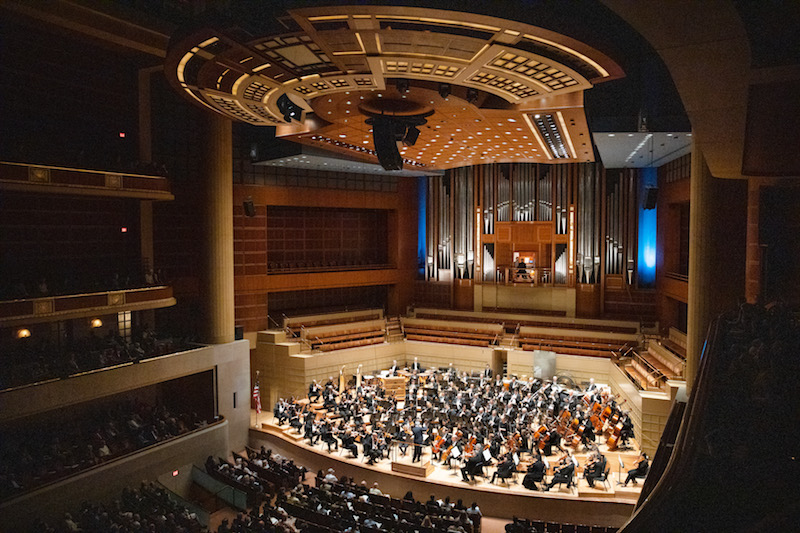The Dallas Symphony Orchestra and Fort Worth Symphony Orchestra have announced reimagined fall 2020 seasons in response to the COVID-19 pandemic. Both orchestras will be back on stage and performing for live audiences in September, but seeing a symphony this fall will be a bit more complicated than it was pre-COVID. We’re looking at reduced capacities in the concert halls; smaller, distanced orchestral ensembles; and fewer performances. Even in the midst of a global crisis, the show goes on.
Dallas Symphony Orchestra is calling its fall season “Next Stage” as it navigates this new territory under the guidance of president and CEO Kim Noltemy and music director Fabio Luisi.
There are some bits of disappointing news: The DSO has postponed some pieces from its beloved Pops Series, including Toy Story Live, Harry Potter and the Chamber of Secrets, and “The Music of Selena” to 2021. Due to having a smaller chorus this season, the orchestra also postponed its performance of Verdi’s Requiem, though it’s been replaced by another arrangement of Verdi conducted by Luisi. The orchestra will also perform a shortened version of The Nutcracker this November.
But the updated schedule also brings a few pleasant surprises. The DSO announced a new program in partnership with Dallas Black Dance Theatre and Project Unity to honor lives lost to racial violence. The piece, a newly commissioned work by Dallas-based Quinn Mason, will be performed with musicians from the Young Strings Program and baritone Reginald Smith, Jr.
In another effort to promote racial equity in its organization, the DSO this fall will feature works by six Black composers: Adolphus Hailstork, Scott Joplin, Quinn Mason, Jessie Montgomery, Jelly Roll Morton, and George Walker.
“We have much work to do in the area of equity, diversity and inclusion, but it is a priority for the DSO, and very soon we will share our comprehensive plan to ensure that the DSO takes a leadership role in this important work,” Noltemy said in a statement.
Throughout the season, the orchestra will limit audiences to 50-75 guests in the Meyerson Symphony Center. There will be no intermissions, no food and beverage service in September or October, and distanced seating. The DSO will also be filming concerts and offering them on-demand.
The Fort Worth Symphony Orchestra will also be returning in September with a modified schedule and reduced audience capacity. Adhering to social distancing guidelines and current government mandates, Bass Performance Hall will allow up to 500 patrons at concerts throughout the 2020-2021 season. For its Pop Series, however, the orchestra will move to the Will Rogers Memorial Stadium, where it can perform for up to 800 distanced audience members (50 percent capacity of the venue’s normal capacity is 1,417). Like the DSO, the Fort Worth Symphony is shrinking its orchestral ensembles for concerts this season–30 musicians fit safely on stage at Bass Hall and 40 at Will Rogers.
The FWSO is also requiring audience members to wear masks, fill out a health survey before attending any concerts, and follow the six foot rule.
While a few big performances, like The Music of John Williams and Audra McDonald, have been canceled, most are still underway. The season kicks off on September 11 with a full weekend of concerts by Texas country band Asleep at the Wheel. At the moment, the New Year’s Eve Celebration is still on, as is a February gala with a performance by Yo-Yo Ma, dinner, and dancing.
Individual concert tickets for the Fort Worth Symphony Orchestra go on sale on August 6; find info about subscriptions here. Tickets to the Dallas Symphony Orchestra are currently only available to subscribers–the organization will not sell single tickets until the audience capacity is raised.





